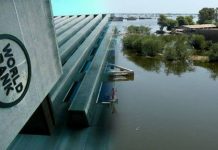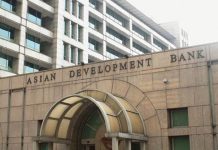Bureau Report
KARACHI: Vice President of Pakistan Businesses Forum (PBF),Chaudhry Ahmad Jawad has called upon the government to dedicate one of the special economic zones to food processing and value additions specifically.As optimising the potential of the agriculture sector is contingent upon a paradigm shift from supply-led production to demand-driven high value agriculture.
Speaking to webinar on focus agriculture on Monday, he said approximately, 80.39% of total exports from Pakistan were industrial products and 19.08% were agricultural products, which was unfortunate. In this regard we must focus on increasing value addition and develop a strategy for diversification.
“Our farmers must get better farm income by doubling of exports. This is the right time to increase our productivity and diversify to value addition. We must designing specific strategies to improve organic agriculture and value addition in food items,” he said. Ahmad Jawad said that organic farming is the way forward for agriculture in Pakistan. The increasing trend of organic agricultural produce is on therise and necessary steps must be taken to promote organic farming and improve our organic identity globally. Similarly we should have a properly designed agricultural export policy, which has provisions of incentives for exporters, fund to promote Agri start-ups and encourage new exporters,” Jawad added.
For this, we need to develop a robust strategy which is market oriented and encourages large scale private sector participation in agricultural exports, he said.
It is also the need of the hour to aggressively grow our agri exports so that the agriculture sector continues to grow at a fast pace thereby enhancing farmers’ incomes too. The VP PBF said that the exporters need high connectivity both via the sea and air routes to reduce export costs. “Improved logistics and strategies to curb losses at pre and post-harvest stage will help generate surplus for exports,” he added. Currently we need substantial investment in agricultural supply chain management. We lack quality storage and transport facilities, especially cold storage facilities and refrigerated transport to handle perishable food commodities, especially meat and dairy products. Acquiring these facilities would play a key role in determining the fate of\ agri-trade, both in domestic and international markets. Secondly, the larger challenge remains how to build larger, longer-term scalable competitiveness rather than opportunistic trade that takes place occasionally.





